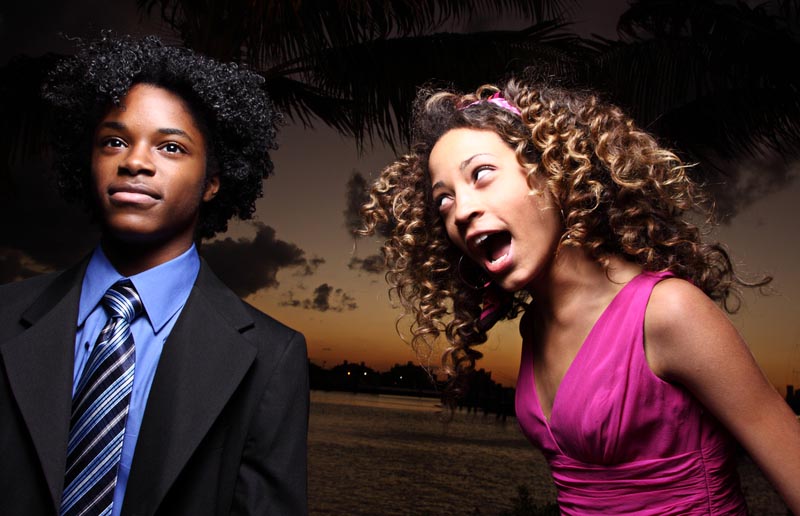Do you remember the old saying about sticks and stones and how words couldn’t hurt you? Forget it. Words can and do hurt. According to one experienced guidance counsellor, verbal abuse can be even more dangerous because the damage it does can remain unseen until it’s too late.
Phyllis Armstrong, a guidance counsellor at St Jago High School, says the Jamaican custom of name calling can have far reaching effects by almost becoming self-fulfilling prophecies. “Persons will say some derogatory things to them and by virtue of that, they behave likewise,” she outlined, “and it affects performance, not just academic performance but performance on the field, performance among their colleagues, even in their interpersonal relationships.”
In a warning to parents and teachers, she elaborated, “According to the words – sticks and stones can break my bones – but I can tell you, words can break you even more than sticks and stones because it can cripple you in such a way that it takes away your energy, it takes away your confidence, it takes away your drive, it takes away your motivation.”
The abuse can include racial slurs, body image degradation and harsh criticism of the subject’s academic performance or behaviour. “You don’t feel like aspiring towards anything”, she pinpointed, “because they have broken you.”
According to Armstrong, who has more than 25 years’ experience as a guidance counsellor, the verbally abused child is prone to depression. “They in turn will also abuse others by saying unkind things to them as well,” she illustrated. That, she said, creates a vicious cycle.
“But I can tell you, if that child lives in a verbally abusive environment,” Armstrong noted, “that child is even harder to help than a child who will have the physical signs because in most cases, you don’t know what’s going on with them unless something happens that causes them to explode.”

Andre T, a 21 year-old Kingston based student, said verbal abuse can happen at school. “It tends to be harsh,” he said of school ground arguments, “and some people would be affected by it – they have a mental breakdown and it will cause their behaviour to change in a drastic way.”
Armstrong advised parents to be careful about how they address their children. “Parents should guard their tongues knowing that they are as powerful as any physical incentive or praise that they could give,” she counselled. “If the child comes home with something they did well and they get 90% on it, it’s easier for some parents to say, “what happen to the other 10%, rather than saying congrats or high five to make the child feel affirmed,” she related.
To Read More: Purchase your copy of Volume 9 #2 – May – June 2017


Share this post:
Do you remember the old saying about sticks and stones and how words couldn’t hurt you? Forget it. Words can and do hurt. According to one experienced guidance counsellor, verbal abuse can be even more dangerous because the damage it does can remain unseen until it’s too late.
In a warning to parents and teachers, she elaborated, “According to the words – sticks and stones can break my bones – but I can tell you, words can break you even more than sticks and stones because it can cripple you in such a way that it takes away your energy, it takes away your confidence, it takes away your drive, it takes away your motivation.”
The abuse can include racial slurs, body image degradation and harsh criticism of the subject’s academic performance or behaviour. “You don’t feel like aspiring towards anything”, she pinpointed, “because they have broken you.”
According to Armstrong, who has more than 25 years’ experience as a guidance counsellor, the verbally abused child is prone to depression. “They in turn will also abuse others by saying unkind things to them as well,” she illustrated. That, she said, creates a vicious cycle.
“But I can tell you, if that child lives in a verbally abusive environment,” Armstrong noted, “that child is even harder to help than a child who will have the physical signs because in most cases, you don’t know what’s going on with them unless something happens that causes them to explode.”
Andre T, a 21 year-old Kingston based student, said verbal abuse can happen at school. “It tends to be harsh,” he said of school ground arguments, “and some people would be affected by it – they have a mental breakdown and it will cause their behaviour to change in a drastic way.”
Armstrong advised parents to be careful about how they address their children. “Parents should guard their tongues knowing that they are as powerful as any physical incentive or praise that they could give,” she counselled. “If the child comes home with something they did well and they get 90% on it, it’s easier for some parents to say, “what happen to the other 10%, rather than saying congrats or high five to make the child feel affirmed,” she related.
To Read More: Purchase your copy of Volume 9 #2 – May – June 2017
Share this post: